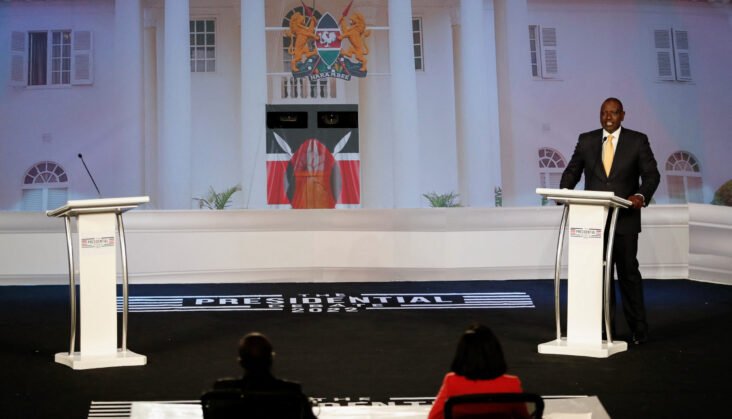[ad_1]
Despite recommendations from the government’s anti-graft watchdog that the 241 candidates be barred from running, only five have been disqualified. The election board has said appeals are ongoing.
The Kenyan constitution allows convicted politicians to stand for office, only condemning candidates if all appeals are unsuccessful.
The politicians who crafted the constitution ensured they had a backdoor. That backdoor leaves us vulnerable to unethical leadership
Among the list of 241 candidates, 55 people are charged with criminal offences, three have been convicted while 11 remain under investigation. Some candidates even stand accused of forging education certificates and not resigning from public office, a requirement for vying.
Speaking to Reuters, Phillip Kagucia, the EACC’s deputy director, said: “The politicians who crafted the constitution ensured they had a backdoor. That backdoor leaves us vulnerable to unethical leadership.”
Among those still allowed to run is John Waluke, a convicted MP who is running for the rural western constituency of Sirisia. He is currently out on bail whilst facing a conviction for forging documents to acquire KSh313m ($2.6m) from the National Cereals Produce Board to buy maize. He was originally sentenced to 67 years in jail and fined $7m.
End of the rainbow?
Raila is a legacy of Kenyan politics. His father, Jaramogi Oginga Odinga, was the very first vice president of the country after it gained independence in 1963.
The former prime minister did not attend the televised debate on 19 July, alleging that the deputy president had demanded that corruption be taken off the debate agenda. The two had been expected to go head to head in the formalised discussion, but only Ruto showed up.
As part of their campaigns, Raila and Ruto have been promising that they will crack down on corruption. Even so, Ruto has been criticised for his lack of severity when dealing with corruption, which is not a strong part of his campaign.
In a recent interview with the BBC, Ruto pushed back on the criticism saying his party has a decisive plan to deal with corruption, including reinvigorating the judiciary. He said: “Today corruption cases take up to 10 years. We want corruption cases [to be] concluded in months.”
Meanwhile, on 24 July, police confiscated two computers supposedly containing election material at offices linked to Ruto.
Other tenants said the previous occupants of the building started vacating the premises on Saturday night to a new location with sources claiming that the items were being transferred to Amaco Insurance head office on Mombasa road.https://t.co/1RvuSvcY1i
— Nation Africa (@NationAfrica) July 25, 2022
Ruto’s running mate, Rigathi Gachagua, is also currently under investigation, with pending court cases over alleged misappropriation of government funds. The Assets Recovery Agency (ARA) has said Gachagua cannot name the source of Ksh200m in three of his bank accounts, even though he insists that he acquired the money through a loan.
On a local TV show in May, Gachagua batted back claims that the allegations made him unfit to stand as Ruto’s running mate. “I made my money during the reign of President Mwai Kibaki, like many Kenyans,” he said.
Ruto has previously described Gachagua as “an astute debater, a successful elected politician who is a principled, resilient and fearless fighter for the right cause”.
During the one-sided debate on Tuesday 26 July, Ruto was also interrogated about the government’s lack of compliance with court orders and general lack of transparency.
The youth vote
The majority of Kenya’s voting population is the young, with 75% of the country aged between 18 and 35.
With rising living costs and the Kenyan shilling continuing to depreciate, a significant youth vote may have considerable sway in the upcoming election.
It remains to be seen whether these recent allegations will sway any voters, as both sides continue to point the finger.
[ad_2]
Source link
